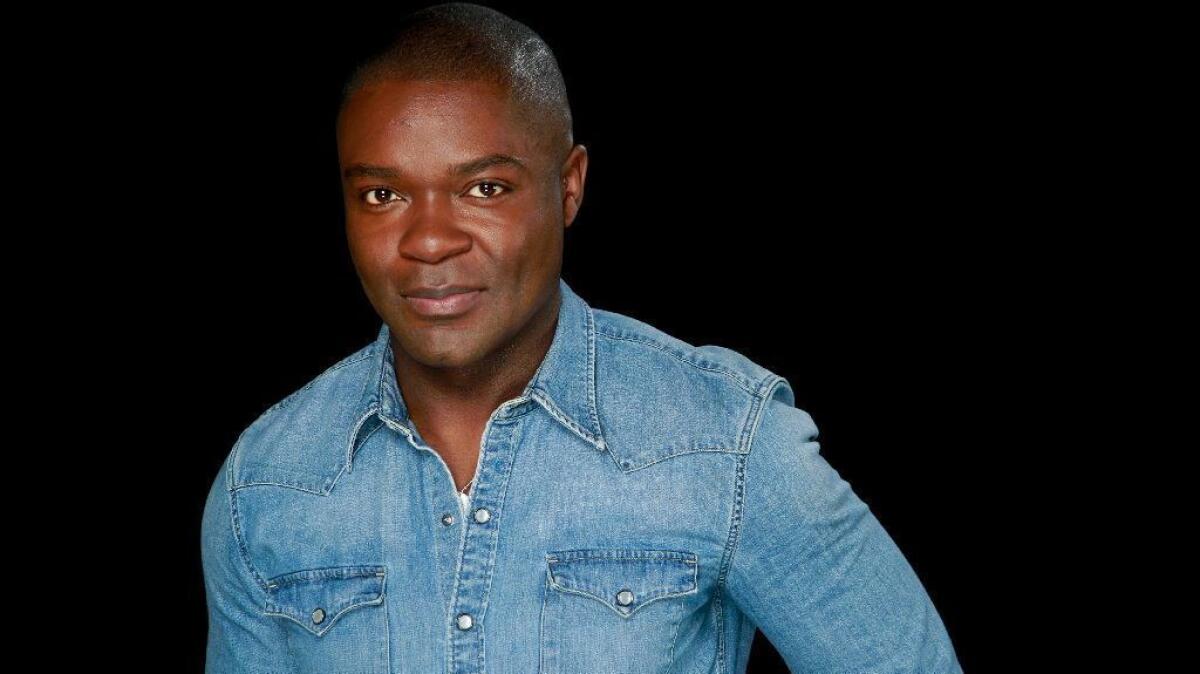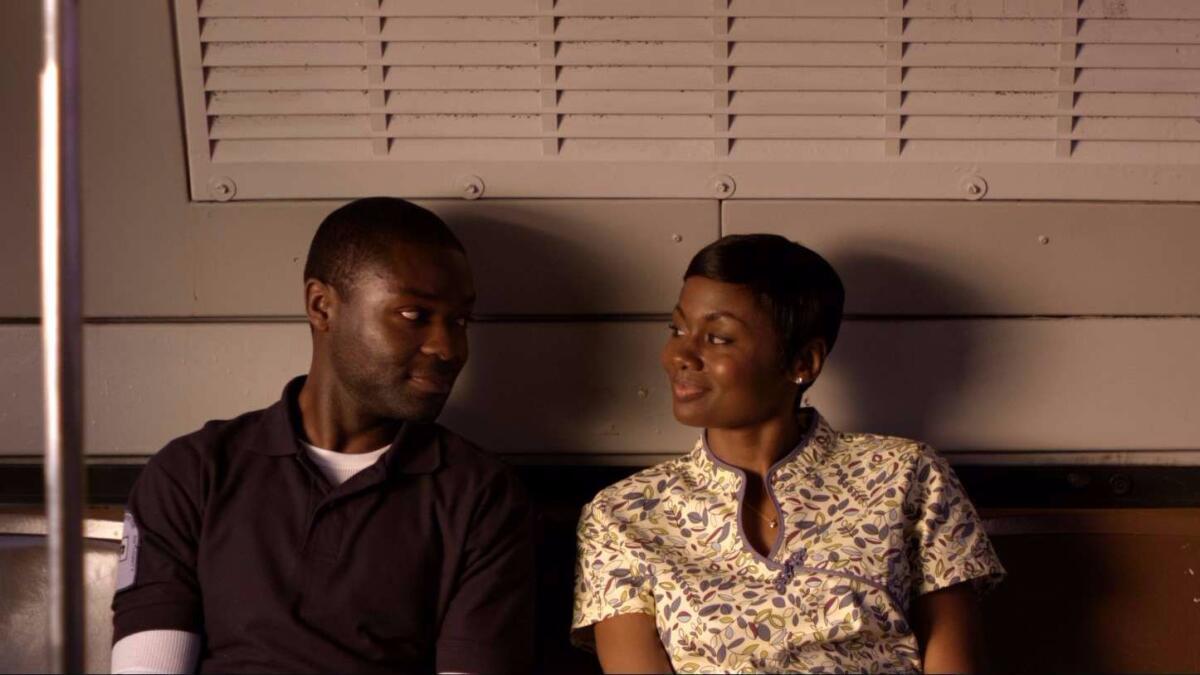Q&A: David Oyelowo describes the ‘gift’ Ava DuVernay gave him while filming ‘Middle of Nowhere’

By all accounts, 2012 was supposed to be Ava DuVernay’s year. Her breakout sophomore feature, “Middle of Nowhere,” nabbed best director at Sundance and bountiful critical praise. But as the film’s male lead David Oyelowo can attest, there was still a struggle.
“There were other directors who were of a different gender and different race, who went on to great things immediately after their films had done the same [festival] route,” he said. “Ava was not getting the phone calls — not from agencies, TV channels, studios or other production companies.”
Five years later — after the pair reunited on the Oscar-nominated “Selma” — DuVernay is an in-demand filmmaker responsible for both the hit TV series “Queen Sugar” and the upcoming big-budget Disney feature “A Wrinkle in Time.”
We spoke to Oyelowo about DuVernay then and now.
What first comes to mind when you think of working on “Middle of Nowhere”?
I have very vivid memories, not least because of the sheer amount of success Ava, [cinematographer] Bradford Young and myself have been afforded since that time. We made that film for $200,000, very minimal resources. I was playing a bus driver, and we had this bus that really should've been condemned. It barely went and we were driving this thing around South-Central L.A. My fondest memory is the moment I have with Emayatzy [Corinealdi] at the back of the bus, and [cinematographer] Bradford Young and his legendary beard were behind the camera. We were so jammed in there that I could feel his beard tickling my arm during this take while Ava is hovering above his shoulder giving me direction and Emayatzy and I were sweating [laughs]. It was guerrilla filmmaking at its best.
This film started a collaborative relationship between you two. How has it been developing that relationship as both of your profiles rise?
It’s been incredible gratifying. One of the things I’m most proud of is that not very long after [“Middle of Nowhere”], by sheer will and sheer force of talent — and by a shift in our industry having to do with, I think, our next film together, “Selma,” which helped start the #OscarsSoWhite thing — we have been able to see a change as it pertains to filmmakers of colors and female filmmakers. It’s something Ava and I would talk about endlessly while we were doing “Middle of Nowhere,” [which had] critical acclaim, but not much of the other stuff that should come with that level of success.
And now Bradford is shooting “Star Wars,” and I’ve done two other films with him since “Middle of Nowhere” — “A Most Violent Year” and “Selma.” And Ava is like a blood sister to me now. I’ll be on any set that has her attached to it anywhere in the word for the rest of my life if I can because I deeply love her and I’m a huge admirer of hers.

Could you have predicted the gravitas DuVernay now has in the industry?
I couldn't have predicted it would have happened as quickly as it has, but it fills my heart with joy. I can remember very specific phone calls — Ava and I have the kind of calls that mean our batteries consistently die on us — about how we can shift our industry to accommodate us. Definitely things have shifted, and she's an enormous part of that.
What lesson has stuck with you from working with DuVernay and doing “Middle of Nowhere?”
The greatest gift any director gives an actor is to instill them with confidence in their own ability. Ava is one of those people who really believed in me. As you can tell from talking to me, I am very much not a bus driver from South Central Los Angeles. [Editor’s note: Oyelowo is of British-Nigerian descent and was born in Oxford, England.]
She had the kind of confidence in my acting ability to take me down to Compton where she has grown up and put me around friends of hers and trust that I would be able to imbibe their spirit and be able to evoke that in her beloved film. That has served me incredibly well going forward because that confidence she had in me back then has been what has enabled me to dare to continue to go near African American roles that are specific and not generalized. That was a gift she gave me on “Middle of Nowhere.”
Full Coverage: Buried treasures of cinema »
Get your life! Follow me on Twitter (@TrevellAnderson) or email me: trevell.anderson@latimes.com.
Only good movies
Get the Indie Focus newsletter, Mark Olsen's weekly guide to the world of cinema.
You may occasionally receive promotional content from the Los Angeles Times.




